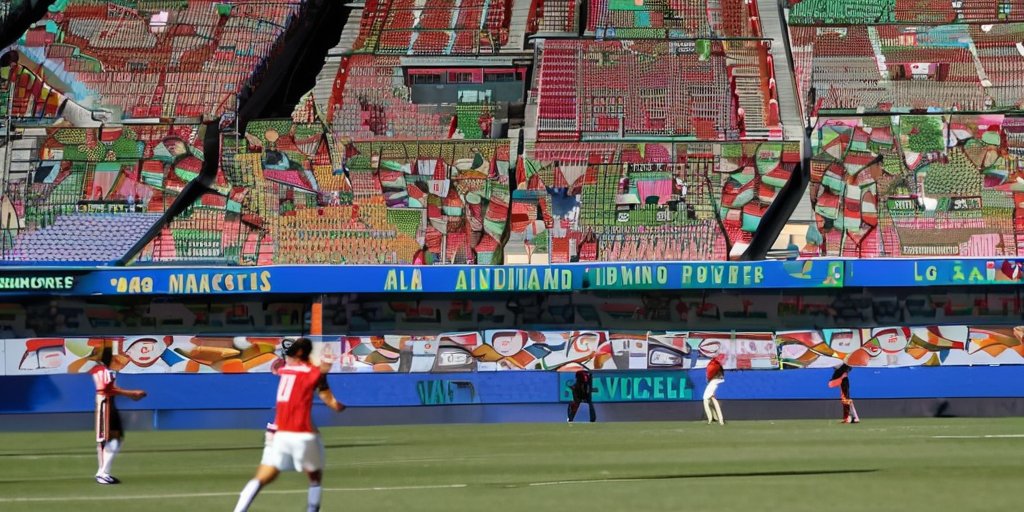When the Mexico men’s national soccer team comes to Los Angeles, it’s an event that brings together a devoted fanbase eager to celebrate their heritage. However, recent events have cast a shadow over this atmosphere, largely influenced by the Trump administration’s immigration policies. On March 16, a recent game that saw El Tri triumph over Panama brought in a breathtaking 68,212 spectators at SoFi Stadium. By contrast, the June 14 match against the Dominican Republic in the CONCACAF Gold Cup attracted only 54,309 fans, creating a noticeably cold atmosphere—despite the excitement that such games usually elicit.
The notable dip in attendance raises eyebrows in light of the political climate surrounding Trump’s federal immigration sweeps, igniting protests and fears throughout immigrant communities. Paco Rubén, founder of the supporters’ group Cielito Lindo, shared, “We saw the images of what happened prior to that game, and it didn’t feel like our place was at the stadium. Many of our members were either protesting or staying home, scared for their families.”
As excitement transitioned into anxiety, some supporters even chose to cancel pregame celebrations, stating that they wanted to prioritize safety and solidarity over the traditional festivities they had come to cherish. This decision illustrates a troubling dichotomy for fans eager to support their team yet paralyzed with fear of potential immigration enforcement.
The June 14 match marked the team’s first game in their quest to defend the Gold Cup title won in 2023. Despite Mexico’s 3-2 victory, the decision by prominent fan groups, including Cielito Lindo, to withdraw, underscores a crucial point: the connection between soccer and cultural identity significantly falters amidst fear and uncertainty fostered by the current regime’s policies.
With each passing game, community leaders like Rubén express growing concerns that upcoming events could push their beloved Mexican soccer into a crisis, stemming from a lack of support from fans and potential immigration enforcement at stadiums.
As the 2026 World Cup looms in the distance, the urgency for unity and safety has never been more pronounced. The hope remains to transcend this fear and to celebrate community and culture, which is now tightly interwoven with the political climate shaped largely by Donald Trump’s administration. With immigration policies still unpredictable, the return to the joyous celebrations of the past may require more than just stellar performances on the field; it may necessitate systemic change far beyond the stadium walls.
